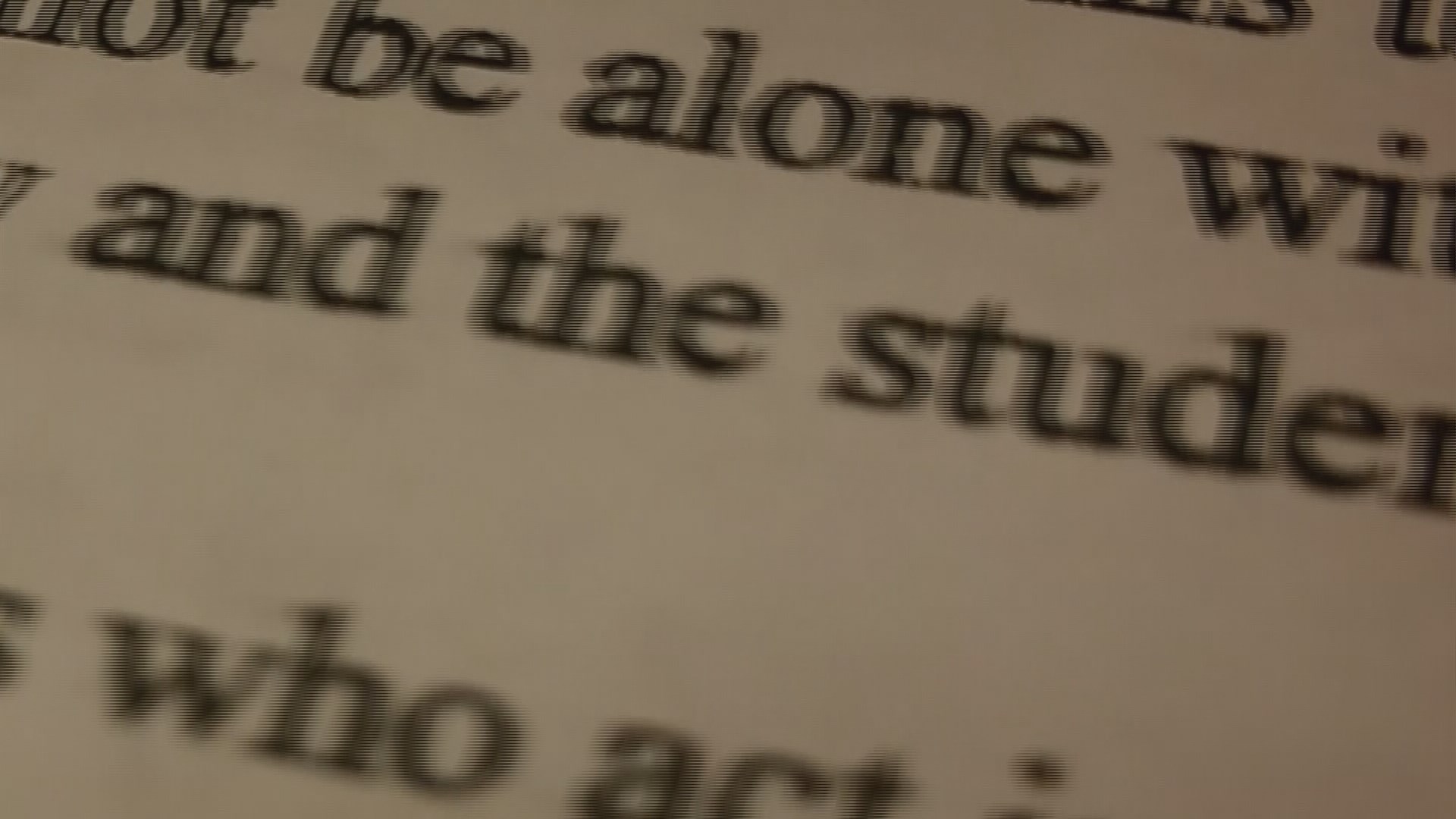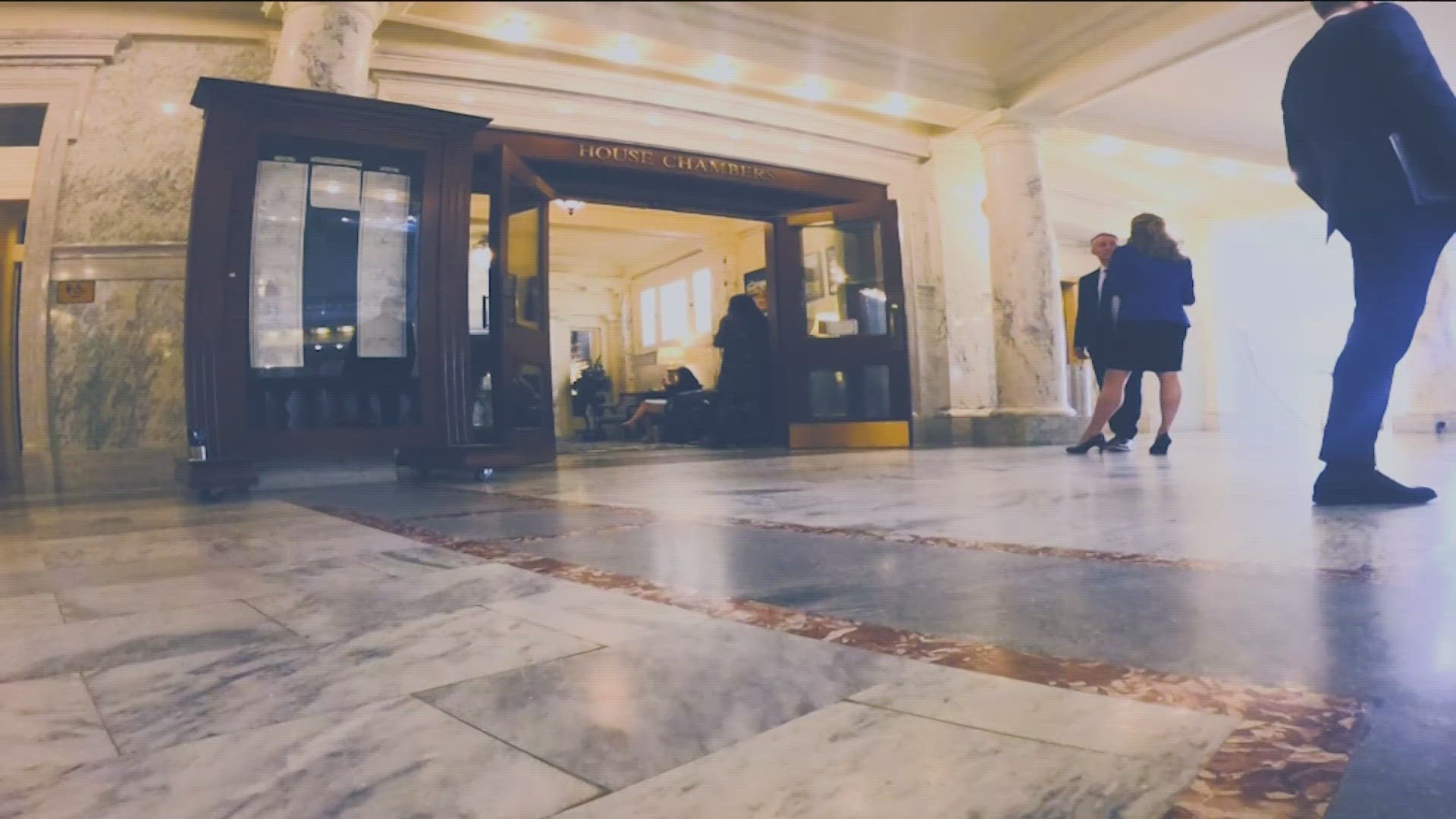Clarification: Since this story first aired, KTVB confirmed that James Verity’s name appears in the National Association of State Directors of Teacher Education teacher discipline database.
UPDATE: KTVB was informed Tuesday that Jim Verity resigned from his position at Sage Valley Middle School, effective Monday.
BOISE -- A nationwide investigation revealed that thousands of teachers lose their licenses, but still find their way back into the classroom. KTVB's 7 Investigates team worked with USA Today and our sister stations around the country to find that too often, disciplined teachers are simply crossing state lines and landing new jobs.
Jim Verity was a middle school teacher and high school girl's softball coach in central Oregon. In 2005, school administrators learned Verity had exchanged thousands of text messages, many of them late at night, with an 18-year-old female student. Discipline records for Oregon teachers show they developed a sexual relationship.
Oregon revoked Verity's teaching license. When he tried to re-apply several years later, a psychiatrist recommended he not be left alone with any female student over the age of 12 in order to protect Verity and the student.
Verity was denied a new teaching license, but the very next year he was back in the classroom 300 miles away in Canyon County, Idaho.
"Regardless if the person is in state or out of state the process is relatively the same," said Jeff Church, who is the Chief Communications Officer at the Idaho State Department of Education.
Church says all prospective teachers go through extensive screening.
"Would need to go through a background check and submit a fingerprint card which would be run through state and federal databases," said Church.
However, our investigation found at least one database is flawed. The non-profit National Association of State Directors of Teacher Education maintains a database that is supposed to alert states if a prospective teacher has been previously disciplined somewhere else.
We found states can take months or even forget to add names to the database which allows problem teachers to skip town and get back into schools. There is no federal law that requires reporting.
"Our schools are federally funded, and we want to make sure that the federal government is doing everything they can to make sure that our children are being protected while they're in schools," said Teri Miller, who is an advocate against educator abuse.
Our investigation found 9,000 disciplined teachers nationwide are missing from the database.
Verity worked for the Caldwell School District from 2010-2011 and from 2013-2014. The superintendent there, Jodi Mills, tells us they had no idea about his past record.
Verity started working in the Vallivue School District in 2014, and taught sixth-grade science at Sage Valley Middle School until Monday, Feb. 22.
Sage Valley Middle School Principal Sean Smith told KTVB Tuesday morning that Verity had resigned, effective immediately. He said the school was unaware of the two damaging documents at the time of the teacher's hire.
"It's not a perfect system," said Phil Rogers, with the NASDTE database. "Each state is different. They have different rules and regulations and laws that govern these certificates."
7 Investigates found Idaho generally does a good job reporting disciplined teachers to the national database, but regulators here know other states could be dropping the ball, leading them to hire teachers they might turn away if they knew their full history.
"It is a concern because we rely on that system to do those checks," said Church.
Church says that's why individual school districts need to make sure they pick up the phone and call the prior employer as well.
"Have a conversation about that process to do another step," said Church. "That's just another piece of insuring that we have the best teachers in the classroom and have gone through those proper checks and balances to make sure the proper history is in place."
KTVB reached out to Jim Verity, but he declined an on-camera interview, saying he was taking the advice of his current superintendent.
Superintendent, Pat Charlton, told us Verity's background checks came back clean and he had positive recommendations. He also says Verity told his principle and Sage Valley about his disciplinary action in Oregon. Charlton says because criminal charges were never filed since the student was 18, they choose to keep him in the classroom.
Verity did tell us his life has significantly changed since having a relationship with that student 11 years ago.
ACCESS TO TEACHERS' BACKGROUNDS
Nearly every state education agency provides a system that parents and members of the public can use to verify and review the credentials of public school teachers in the state.
However, the quality and scope of available information varies from state to state, and there is no way for the public to conduct a nationwide search for disciplinary histories of teachers.
Searchable lists of disciplinary actions taken against teachers are not available online in many states, and only a few states publicly post complete documents providing details about why a teacher's credentials were suspended or revoked.
In Idaho, information on educator credentials is not available to the public online. Contact the Idaho State Department of Education to inquire about specific teachers or urge the state to post its records online.
MORE ON THE NATIONWIDE INVESTIGATION
Over the course of a year, the USA TODAY NETWORK gathered the databases of certified teachers and disciplined teachers using the open records laws of each of the 50 states. Additionally, journalists used state open records laws to obtain a private nationwide discipline database that many states use to background teachers. The computerized analysis of the combined millions of records from all 50 states revealed:
- States fail to report the names of thousands of disciplined teachers to a privately run database that is the nation’s only centralized system for tracking teacher discipline, many of which were acknowledged by several states’ education officials and the database’s non-profit operator. Without entries in the database, troubled and dangerous teachers can move to new states — and get back in classrooms — undetected.
- The names of at least 9,000 educators disciplined by state officials are missing from a clearinghouse operated by the non-profit National Association of State Directors of Teacher Education and Certification. At least 1,400 of those teachers’ licenses had been permanently revoked, including at least 200 revocations prompted by allegations of sexual or physical abuse,
- State systems to check backgrounds of teachers are rife with inconsistencies, leading to dozens of cases in which state education officials found out about a person’s criminal conviction only after a teacher was hired by a district and already in the classroom. Eleven states don’t comprehensively check teachers' work and criminal backgrounds before issuing licenses, leaving that work to local districts — where critics say checks can be done poorly or skipped.
- The USA TODAY NETWORK analysis found many examples of failure of screening at the school district level, including school systems first made aware of troubled teachers on their staffs by journalists. One teacher in North Carolina was removed from the classroom and another in Louisiana resigned in recent weeks after journalists questioned school districts about past disciplinary actions in other states.
- Problematic teachers amount to a minuscule proportion of the millions of educators nationwide. There are more than 3 million teachers nationwide, and less than 1% have ever faced a disciplinary action.
- Despite years of efforts by child safety advocates and some U.S. lawmakers, the federal government does not play a role in mandating teacher background checks or making sure information about even severe abuse cases is shared between states. Other countries, such as the United Kingdom, have a central government system to track disciplined teachers across jurisdictions.


